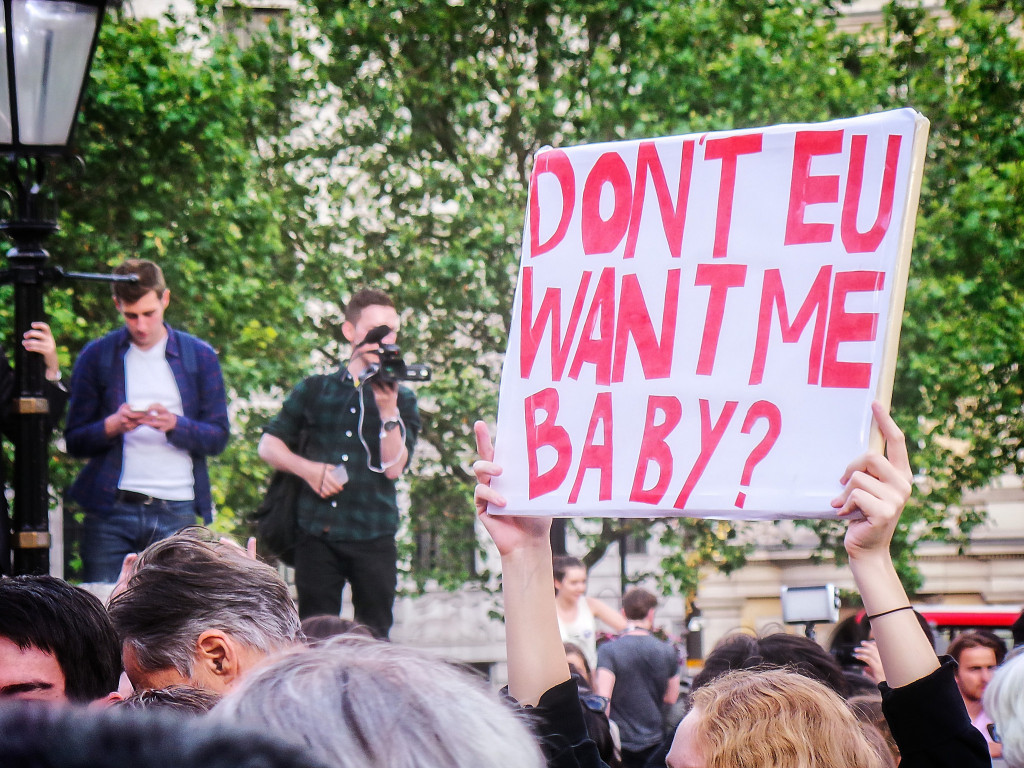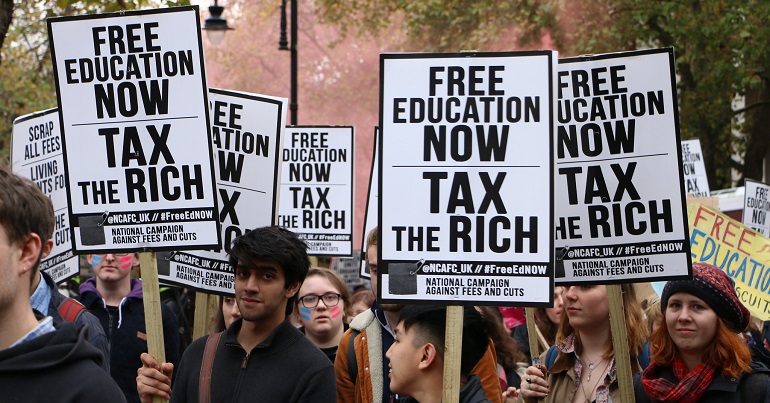Judgemental and condescending: how Remain failed the working class

During the EU referendum and in its aftermath, I have noticed a huge amount of condescension and judgemental attitudes from the Remain campaigners (many of them Green Party members). I believe one of the reasons why the country voted Leave is precisely because the Remain camp talked down to those who were thinking of voting leave, and didn’t try to engage with working class and poorer communities. They could not put themselves in the shoes of those from disadvantaged socio-economic classes and could not see that many of their arguments seemed to hold no relevance to so many people.
When people voted in a different way to what they thought as right, they painted them as intolerant, racist and now are directing their anger towards anyone who voted to leave or who encouraged a leave vote. I am wondering, how many of you actually knew people who voted to leave or have even tried to understand why they voted how they did? Because I do, and none of them were racist. Among the people I know and spoke to who voted leave, were those from ethnic minority backgrounds.
Initially, voting remain was something I believed in wholeheartedly. I loved the fact that the U.K, or more particularly, London, is a very multicultural city. I wanted the country to be outward facing. But then I realised maybe I wasn’t as pro-EU as I had thought. And actually there was a very good argument for Lexit (a left wing exit). But “no!” shouted all the pro-EU campaigners. they maintained anyone who even thought of voting for Brexit must be stupid, must not understand the repercussions, must not realise we are inadvertently promoting racism, must not realise that we must be “in it to change it”. There was so much anger and venom on both sides, and after a while, I had to completely withdraw from social media. In the end, I voted remain (mostly because I found the racism of Nigel Farage’s campaign very hard to bear), but I can understand why many people voted leave.
What the campaigners didn’t realise, is that in getting angry and at shouting at the very people who they were supposed to be talking to, they were making the situation worse. What they didn’t realise, is that for many people, the benefits of the EU aren’t obvious. When they talk about the stronger economy – they should remember, for the poorest, the govt implemented austerity under EU and probably will outside of the EU, so what does it matter? When they talk about disability rights – the EU did not intervene when recently Employment and Support Allowance was cut for those with illnesses and severe disabilities. That was one of the biggest lifelines for poorer disabled people and a huge breach of disability rights. The EU didn’t stop the Disability Living Allowance being changed to PIP, even when that meant bringing in corporations to assess the sick and chronically ill, which led to deaths of benefit claimants. The EU didn’t intervene when PIP was cut; in fact it was due to public outcry from within the UK, that it was reversed. Care budgets are slashed every year; for those with money that doesn’t matter, but for poorer people it definitely matters, but this is not on the agenda for the EU.
When they talk about house prices falling, for the millions of people who can’t even dream of owning a house and are struggling to pay rent, that’s probably a good thing. When they talk about the pound weakening, when a lot of people struggle to pay for the weekly food shop every week and are surviving on the bare minimum each week even under the EU anyway, it’s probably not top of their concerns. When they talk about working conditions weakening, for people who have been attending job-centres for a long time and are struggling to get a decent job or are moving from job to job , or for people who have seen their collective bargaining weakened over and over again under the EU, do they really care? When they talk about the ability to move and work in all the other EU states – for people who do not have the privilege of skills, confidence or money to be able to do that, and who do not see their children getting any opportunities either, this is irrelevant. For people who are unemployed, for vast swathes of the population whose industries have been decimated, the arguments used by Remain campaigners probably held no significance. They were talked down to, and not understood.
To so many people, including some of the people I know, the EU seems like an undemocratic group that sits outside of this country, which makes laws that don’t seem to make their lives any better, and which people have little control over.
Sometimes it feels like people have forgotten that the EU doesn’t make up the whole world. Because of its deals within the EU, because of free trade within the EU, developing countries lose out through trade in many ways. We claim to care about people, but is that only richer European people? Because the rest of the world matters too. In fact, I would argue that instead of remaining within a western club, we should be looking to instead increase trade (in a fair, ethical manner) with and better the lives of people in developing countries which are outside of the EU, which at some time or other, were colonised by European countries. The Green Party talks about internationalism; I don’t believe the EU is internationalist.
Because of the EU, countries must commit to pro-austerity policies and policies that favour businesses over people. The list of things that the Greek and Portuguese governments had to privatise as part of the reform project imposed by the EU, is horrendous. All parts of the EU economy have to be open to competition.The EU, although it has implemented various individual workers rights, attacks and weakens collective bargaining. That is absolutely fundamental to workers rights – how can we hold up the EU as a bastion of workers rights? In order to make labour easier to move across borders, the EU introduced laws that mean companies can employ workers at standards lower than the ones which had already been put into place by collective bargaining and trade unions.
Then there’s the fact that some of the things which have been touted to be big wins by the EU, don’t quite stack up. The EU has got an air pollution directive, which would be fantastic, if it actually led to any change. The UK, year after year, breaks the annual air pollution limits within days. It should be noted that the EU only introduced these, after it allowed diesel to gain a foothold across the EU due to intense lobbying, which contributed to the awful levels of air pollution in the first place. Oxford Street breaches its air pollution limit by January. The UK govt has to publish a “plan”, it gets a fine, and it carries on as normal. The case recently of a little girl dying of a final asthma attack in the South Circular due to horrific air pollution is a case in point. Chronic conditions and ill health tend to disproportionately affect the poor, perhaps due to stress brought on by financial insecurity. My asthma gets worse and worse every year, and since moving to a very built up area, it is even worse. On top of this, my council has given permission to a corporation to build apolluting incinerator within a mile of my house, which will spew out dioxins and toxins constantly – the EU is very quiet on this. In fact, the EU encourages incineration and big multinationals use the idea of EU support to persuade councils to approve incinerator plans and to present them as “green”. I am very scared for my health, and I am not seeing these benefits of the EU.
The EU has of course done many good things, many of which were listed by the pro-EU campaigners. Among them were workers rights, disability rights, animal rights and environmental rights. I would argue that even without the EU, the UK may have accomplished many of these things. We forget that our trade unions accomplished many amazing things, and we have very strong disability rights, environmental and ethical movement and lobbying groups within the UK.
Whatever good the EU did is in the past; now, though, the EU is hugely neo liberal. I don’t believe it would ever allow a left wing government to get a foot hold in the UK, and even if it did, it just would not be able to implement most of its policies. Treaty change would require a big majority, something that I believe could not ever happen, especially with the right wing mood of the continent. I believe the EU is a just another layer of right wing, neo-liberal governance. Yes, David Cameron and Britain may be one of the biggest right wing leaders in the EU, but the rest of the EU cannot in any way claim to be left wing or pro-people. Many people used the argument that although the EU is right wing, it doesn’t matter, because it is marginally less right wing than the current Tory Govt. I would say this is irrelevant. Just because we have one layer of right wing governance, it doesn’t mean it’s good to have another layer of right wing governance, which our govt could hide behind when it suits them.
There are undoubtedly certain areas where cross-border cooperation is vital: climate change and crime are among them. There’s nothing to say we cannot cooperate with countries to do these things. We cooperate with many countries that are outside the EU, and still trade and talk to them all. We do not have to be part of a neo-liberal club to do that. I don’t see why we need to be “in it” or even to “change it”. Free movement and free trade are economic conditions, not an indication of someone’s xenophobic tendencies. Less developed areas that I would argue actually deserve more help, such as Africa or India or South America, do not have free movement with the UK, but I’ve never heard it being argued that we have suddenly have become inward facing and hate all Indians! I believe in localism and local economies and am still not entirely convinced about whether free trade and free movement truly support this. With free trade, local economies are not given as much incentive or support to grow and thrive. With free movement, it is far easier for companies to take on already-trained people from across the EU, instead of committing to spending time and money training young and older people within the local area and country. This is particularly relevant for communities outside London which once had an industrial heritage, and even for families within cities, who no longer have their livelihoods.
Because of successive government policies, vast swathes of the population were left without jobs and housing. A lot of the people who voted leave were from poorer socio-economic backgrounds. What does that tell you? It doesn’t mean that 17 million people, 52% of people who voted to leave, are racist, it doesn’t mean 52% of voters are intolerant, it doesn’t mean they are morons and it certainly doesn’t mean they deserve pro-EU campaigners’ anger. Yes, the leave campaign focused on immigration and had some awful racist over-tones, and yes some of the people who voted leave were racist and have used the aftermath of the referendum to reveal those views publicly, but that does not mean all or even the majority of people who voted leave, did so because they hated Polish or Romanian people.
As council cuts deepened and local funding collapsed and the job market became even more difficult, it was easy for some to latch onto immigrants as the cause of the problem. But instead of getting angry at these people, maybe campaigners need to put themselves in their shoes, and realise that some of these people might have had pretty hard lives themselves and understand why they believe what they do. Living in London, living very middle class or upper middle class lives and having the ability to travel across Europe, affords a certain type of privilege to campaigners, and it would be good for them to recognise that. There is a lot of classism which I am appalled to see.
In the end, whether for left-wing reasons or right-wing reasons, the country voted to leave the EU. I don’t know whether the country is going to lurch to the right, but I know one thing: there was austerity before, and there will be austerity after.
I think it is important to be kind and understanding towards those who don’t hold the same views. And in the hardest situations, it is even more important.
This article originally appeared on the authors personal blog, found here: https://rosaamongstthethorns.wordpress.com/2016/06/26/why-remain-campaigners-fail-to-understand-the-poor-and-the-working-class/




You open up a very important and critical aspect of the shortcomings of mainstream so-called progressive political outlook.
The educated middle classes( ie those in executive, managerial and professional jobs or in relationships with such) as well as capitalist families are removed from those in less secure and poorly paid jobs and the unemployed.
They don’t understand ,as Gordon Brown didn’t that many of the latter groups the:working and underclasses are feeling incredibly anxious and insecure and seeing themselves, their adult children or grandchildren struggling with poor jobs and big bills for housing.
There are millions in this position because they haven’t been given opportunities to train as plumbers , nurses etc. etc. It is not just whingers it is folk who have been seriously let down by both British and European by left of centre politicians as well as being oppressed by capitalism and their parties.
spot on couldent agrea more
A wonderful article. Well said!
An excellent analysis, Rosa, which I have also echoed on my blog-the Remain side’s failure to call out for fundamental reform of EU institutions and how the EU operates was also a crucial factor in the British people voting for Leave overall.
And to those calling for a second referendum-please just stop it. You cannot just rerun democratic votes like these just because they do not deliver the result you wanted.